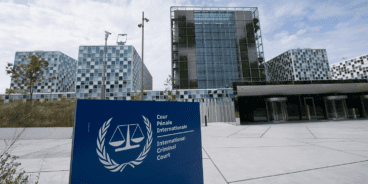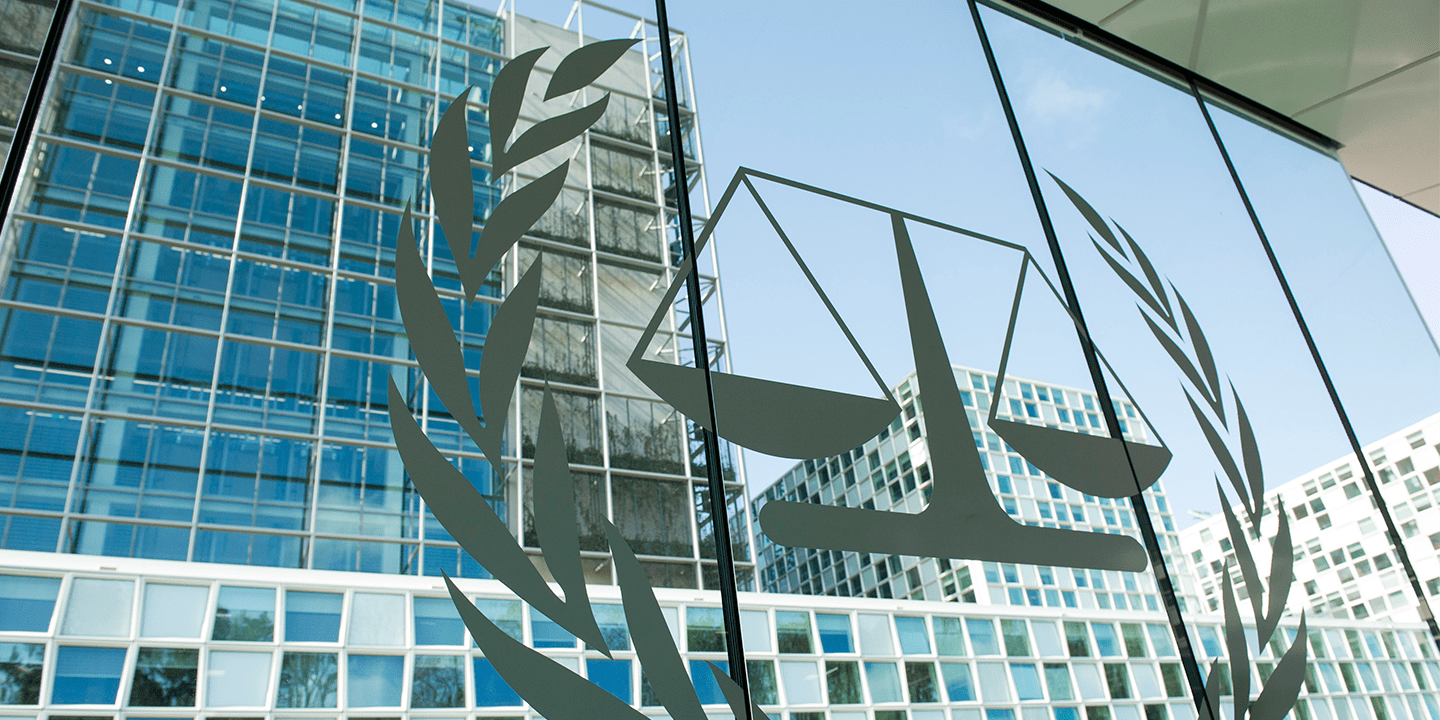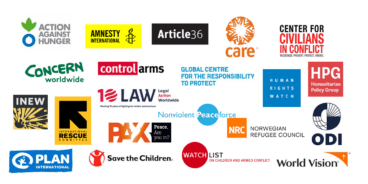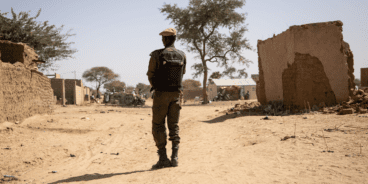

Joint NGO Statement: Oppose Trump Administration Measures against the International Criminal Court
The undersigned organizations express their deep concern regarding today’s announcement by Secretary of State Pompeo and other senior U.S. officials that the United States, among other things, has invoked emergency powers in order to threaten asset freezes and other punitive actions against officials of the International Criminal Court (ICC), their family members, and those who assist their investigations.
The ICC exists because it is difficult to hold government officials and other powerful actors accountable when they commit grave human rights abuses. That impunity, in turn, is corrosive to the broader rule of law, the prospects of lasting peace, and respect for the dignity of all. Since the ICC’s establishment in 2002 as a court of last resort, diverse coalitions of faith-based organizations, human rights advocates, legal practitioners, victims of atrocities, and other constituencies have often looked to it to complement and reinforce their work for justice. Like all other human institutions, the ICC has room for improvement. Nevertheless, from Uganda and the Central African Republic to Darfur and the situation in Bangladesh/Myanmar, the ICC continues to play a vital role, filling gaps in the justice system by independently investigating and prosecuting grave atrocity crimes when national authorities do not do so, or when they seek out help.
This is the context that makes the latest steps in the U.S. government’s attack on the ICC so alarming. It is unacceptable that the United States would target the judges, prosecutors, and other legal professionals of a court that more than 120 countries have joined – including U.S. allies in Europe, Latin America, Africa, and the Asia-Pacific region – using tools that are designed to stigmatize war criminals and disrupt terrorist networks. At this fragile moment in our country and globally, the U.S. government must find ways to address its stated concerns without alienating other countries that have supported international justice or signaling to those who may face the scrutiny of institutions like the ICC that intimidation is an acceptable means of avoiding accountability.
The United States can and should be a powerful voice for justice and accountability for mass atrocities. Punitive measures against the ICC diminish the credibility of that voice. We urge the administration to reverse the steps it has announced, and we urge members of Congress to clearly and publicly oppose this policy.
- The Advocates for Human Rights
- Alliance for Peacebuilding
- American Civil Liberties Union (ACLU)
- American Friends Service Committee
- American Jewish World Service
- Amnesty International USA
- Anti-Torture Initiative, American University Washington College of Law
- Center for Civilians in Conflict (CIVIC)
- Center for Human Rights & Humanitarian Law, American University Washington College of Law
- Center for Victims of Torture
- Center for the Study of Law and Genocide at Loyola Law School
- Charity & Security Network
- The Columbia Human Rights Institute
- Congregation of Our Lady of Charity of the Good Shepherd
- Cornell International Human Rights Clinic: Litigation and Advocacy
- Darfur Women Action Group
- Defending Rights & Dissent
- Evangelical Lutheran Church in America
- Fortify Rights
- Freedom Forward
- Friends Committee on National Legislation
- Global Centre for the Responsibility to Protect
- Global Justice Center
- Human Rights Center, University of California, Berkeley School of Law
- Human Rights First
- Human Rights Institute, Georgetown Law
- Human Rights Watch
- The International Center for Transitional Justice
- The International Criminal Court Alliance
- The International Criminal Court Student Network
- International Human Rights Center, Loyola Law School, Los Angeles
- International Justice Project
- J Street
- Leitner Center for International Law and Justice at Fordham
- Maryknoll Office for Global Concerns
- National Advocacy Center of the Sisters of the Good Shepherd
- Never Again Coalition
- The Northwestern Pritzker School of Law’s Center for International Human Rights
- Pax Christi USA
- Peace Action
- Physicians for Human Rights
- Presbyterian Church (USA)
- Project Blueprint
- The Promise Institute for Human Rights at UCLA
- Robert F. Kennedy Human Rights
- The Sentry
- Sisters of Mercy of the Americas – Justice Team
- Syria Justice and Accountability Centre
- Union for Reform Judaism
- Unitarian Universalist Association
- United Church of Christ, Justice and Witness Ministries
- The United Methodist Church – General Board of Church and Society
- United Nations Association of the USA
- United Nations Association – Greater Philadelphia
- Urban Morgan Institute for Human Rights, University of Cincinnati College of Law
- Victim Advocates International
- War Crimes Research Office, American University, Washington College of Law
- World Federalist Movement – Institute for Global Policy
- World Without Genocide at Mitchell Hamline School of Law
Related Content


2024 Statement by members of the NGO Working Group on the Protection of Civilians
